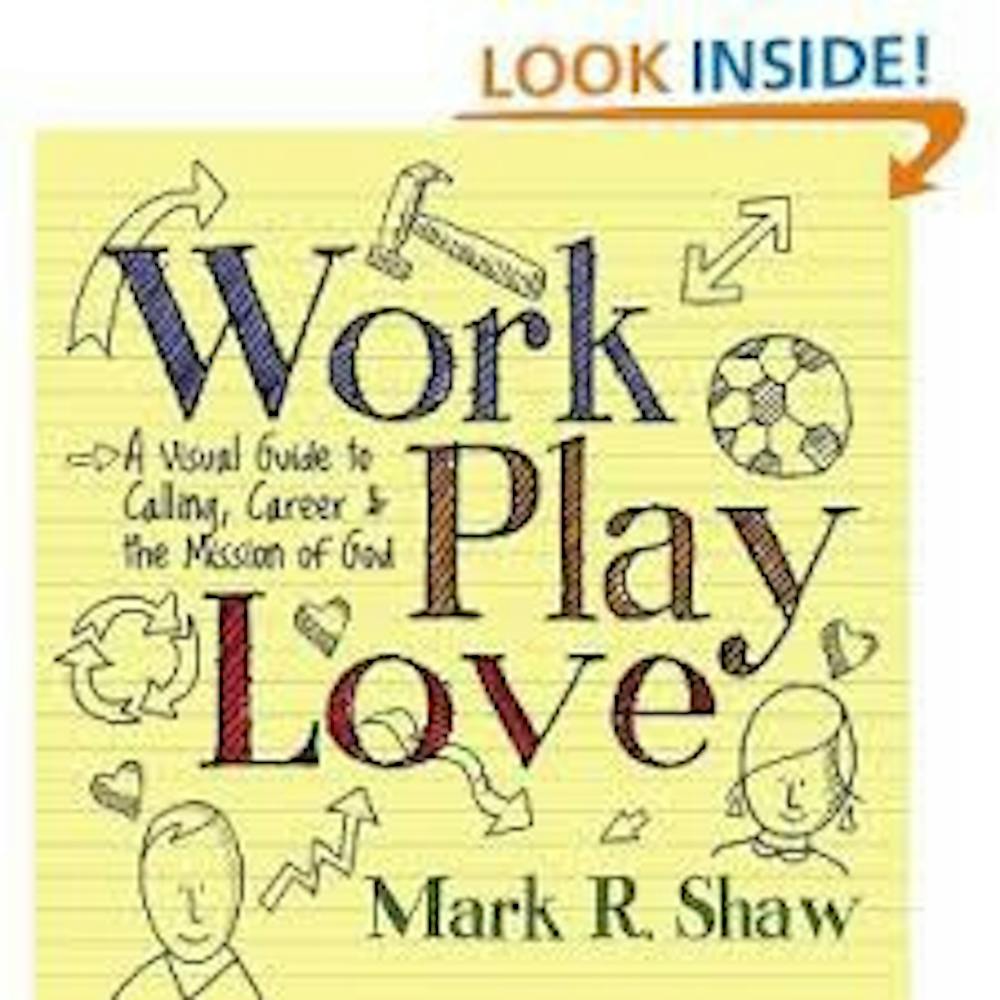By Hannah Haney | Echo
"Human flourishing" is a term thrown around Taylor a lot, despite the ambiguous meaning. What does it mean for a human to flourish? What sort of environment fosters this growth? According to author Mark Shaw, flourishing means finding a biblical balance between work, play and relationships.
In his book "Work, Play, Love: A Visual Guide to Calling, Career & the Mission of God," Shaw seeks to provide a practical guide to balancing those three primary aspects and, in the process, foster human flourishing. The book was released on Sept. 4 by InterVarsity Press, and yes, as the title indicates, there are pictures.
Shaw argues the "work hard" method of life isn't sustainable and neither is the "play hard" nor the "work hard-play hard" models. Instead, he proposes what he calls "the wisdom worker," based off of Proverbs 8. In this model, all three aspects are perfectly balanced. How is this done? Through wisdom work, or introducing an element of play in every aspect of life.
The first two chapters outline how this model operates, which involves delighting in whatever you do and in whomever you are doing things for. Finally the author suggests delighting in everything because God is everywhere. The rest of the book summarizes how this concept of play can change how we approach work and relationships and, ultimately, change the world.
Subtopics break up the chapters with doodle-type sketches sprinkled throughout. Not only do the pictures offer lightness, they also help visually communicate the points. Discussion questions cap each chapter and apply what the chapter covers.
Shaw's communication is so clear that is borders on patronizing. For example, he often refers to Eden fallen and Eden regained-his terms for our fallen world and the restoration that will come when Christ returns. He uses many generic Christian terms, such as the Trinity being a dance of love. He also reiterated his main points multiple times, even though the points were memorable enough to be said once.
His various examples are clever but forced. It's like he's trying to make a puzzle piece fit in the wrong spot. For example, when Shaw talks about play in relationships, he introduces the concept of four styles of love: "phileo"(friend love), "storge"(familial love), "eros"(sexual love) and "agape"(God love). He shows how these work in a marriage by analyzing Ephesians 5:21-27. However the word "phileo"is not present in that verse, though all of the other loves are.
Despite the plethora of books on the topic, Shaw ultimately provides a clear guide to balancing life's facets in a way that ultimately honors God and his gifts to us. If you are looking for a book that not only provides valuable insight, but also practical applications, Shaw has just what you need.





